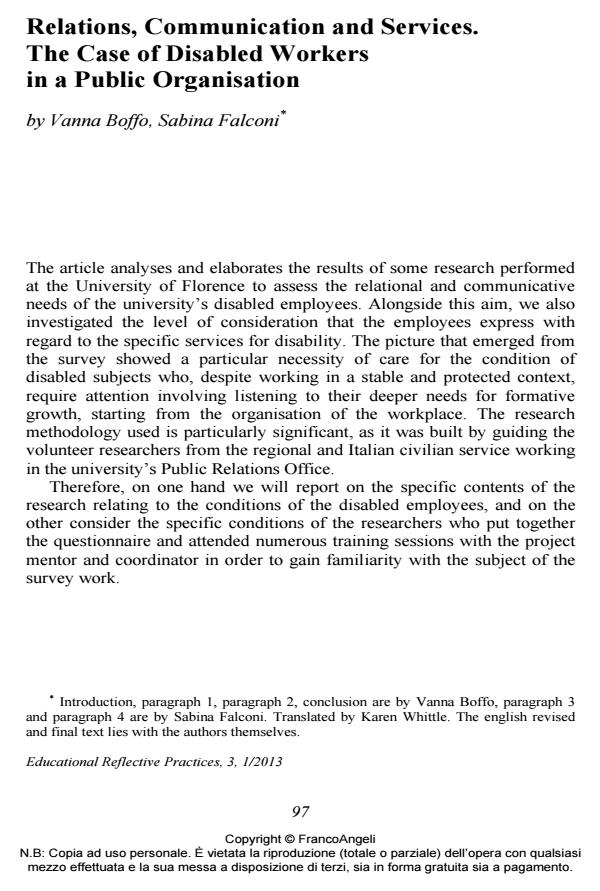Relations, Communication and Services. The Case of Disabled Workers in a Public Organisation
Journal title EDUCATIONAL REFLECTIVE PRACTICES
Author/s Vanna Boffo, Sabina Falconi
Publishing Year 2013 Issue 2013/1
Language English Pages 16 P. 97-112 File size 193 KB
DOI 10.3280/ERP2013-001007
DOI is like a bar code for intellectual property: to have more infomation
click here
Below, you can see the article first page
If you want to buy this article in PDF format, you can do it, following the instructions to buy download credits

FrancoAngeli is member of Publishers International Linking Association, Inc (PILA), a not-for-profit association which run the CrossRef service enabling links to and from online scholarly content.
The article illustrates the outcome of some empirical research carried out at the University of Florence on the topic of the relations and communication of disabled people employed in the various organisational contexts of the university. The theoretical model followed is that of care in the workplace as a means and end for the formative well-being of subjects who, in a particular existential condition, may suffer the professional environment rather than live it to the full in terms of human and social resources. The survey, conducted according to a qualitative-quantitative method, tends to highlight how the educational-formative practice of everyday working life has to be built up through the highly reflective personal contribution of the subjects who work alongside and with the disabled people.
Vanna Boffo, Sabina Falconi, Relations, Communication and Services. The Case of Disabled Workers in a Public Organisation in "EDUCATIONAL REFLECTIVE PRACTICES" 1/2013, pp 97-112, DOI: 10.3280/ERP2013-001007